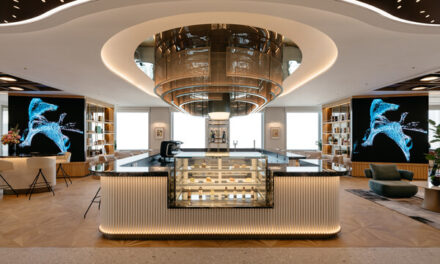
- The cement industry contributes 8% of global CO2 emissions
- PENETRON report finds that the carbon footprint of concrete structures can be reduced by up to 65% by using an advanced crystalline admixture that reduces concrete permeability
- Advanced crystalline admixtures allow for greater concrete durability with less cement
- High durability concrete reduces approximately 90% of the carbon footprint related to the maintenance of concrete structures
- High CO2 emission membrane products continue to dominate the concrete waterproofing industry
NEW YORK, June 23, 2022 /PRNewswire/ — Construction stakeholders can reduce up to 65% of the carbon footprint of concrete by adopting a long-term view and extending the durability of the material, according to the 2022 Towards Zero Carbon Concrete report by PENETRON, a leading provider of crystalline waterproofing solutions. Reducing the usage of cement, one of the most carbon-intensive industrial materials accounting for 8% of global carbon emissions, is critical to achieving the world’s CO2 reduction targets.
The report finds that the durability of concrete poses the largest sustainability challenge in construction. Water is the main cause of concrete deterioration, with corrosion accounting for 80% of all damage. This leads to frequent and costly repairs or replacements, increasing the use of cement, other materials, and energy.
The annual cost of repairing reinforced concrete structures near coastal areas is estimated to be $300 billion per year in the US and £755m in the UK.
The report evaluates how integral waterproofing protection alone can cut up to 90% of the carbon footprint that comes from the maintenance and repair of concrete structures. Additionally, PENETRON estimates that using durable, waterproof concrete reduces a structure’s carbon footprint by 50% or more by extending its service life.
These findings are consistent with the ICRI Committee 160 that states the most effective sustainability strategy for concrete structures is to avoid the need for repairs. Eliminating high-emission liners and membranes, extending the life of concrete structures, avoiding costly repairs, and utilizing non-toxic products contribute to more sustainable construction projects.
Jozef Van Beeck, Director at PENETRON International, commented, “Our report confirms how enhancing the durability of concrete is the most effective way to significantly reduce the carbon footprint of projects, which is very significant both at the construction stage and throughout the service life. Using permanent integral waterproofing solutions further reduces the need for maintenance while also accelerating construction schedules, again dramatically reducing the carbon footprint.
“We encourage our industry to continue to strive for innovation and be more sustainable. However, we estimate that about 80% of global concrete protection is still dominated by unsustainable and inefficient solutions, such as membrane-type products or topical treatments, which are not only inefficient but actually increase a structure’s carbon footprint.
“There is an urgent need for the construction sector to further embrace advanced crystalline admixture technology that can effectively waterproof concrete and massively reduce the carbon footprint of projects.”
Major economies have pledged to achieve net zero in the public construction use of concrete and steel by 2050. The report highlights how the industry must now incorporate low carbon products and sustainable solutions into their projects, such as:
- Enabling smart designs to build more with less
- Building more durable structures to extend service life
- Driving the circular economy and recycling of building materials
- Specifying low carbon footprint solutions
- Incorporating cement alternatives (SCMs) in concrete mixes
The report also urges the industry to reconsider the materials used in building downwards, which has grown highly popular in land-scarce cities. Conventional waterproofing membranes for underground structures have a heavy carbon footprint, with some reaching as much as 23 kilograms of CO2 per meter square, equivalent to almost three times the emissions from a gallon of gasoline[1]. PENETRON estimates the removal of unsustainable membranes from these structures could cut sub-structure carbon footprints by up to 20%.
For more information on the report, visit: https://www.penetron.com/sustainable-concrete
About PENETRON
PENETRON provides an advanced crystalline technology that represents the industry’s gold standard for permanent concrete protection. Active in 105 countries and with production facilities around the world, PENETRON offers products and technical support through a comprehensive network of distributors and subsidiaries.
PENETRON is certified for the ISO 14001 environmental standard in the United States, while its products play a central role in helping projects around the world to achieve internationally recognized standards such as Leadership in Energy and Environmental Design (LEED).
PENETRON products conform to international green building standards such as GREENGUARD Gold, Environmental Product Declaration (EPD), CDPH and Singapore Green Labelling Scheme (SGLS). They are completely free of volatile organic compounds (VOC) and non-toxic, making them ideal for potable water applications.
PENETRON has proven track record on a number of landmark projects, such as Singapore’s Gardens by the Bay and Jewel at Changi Airport; Vietnam’s Sun Marina Town; China’s Universal Beijing Resort; Australia’s Gold Coast Desalination Plant; Indonesia’s Menara Jakarta; US’ Davisboro Water Pollution Control Plant; Mexico’s Riviera Maya Nickelodeon Resort; Brazil’s FIFA World Cup stadiums.




